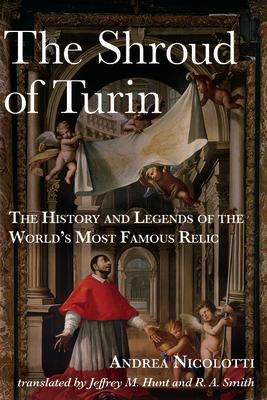Shrouds have long held a special place among the sacred relics of Christendom. In the Middle Ages, shrouds, like holy relics, were the prize possessions of churches and cities.
Cloaked in mystery, these artifacts have long been objects of reverence and awe, as well as sources of debates, quarrels, thefts, and excommunications. Shrouds--so some claim--provide visible testimony to faith. One in particular has drawn the interest of scholars, clergy, and the public alike: the Shroud of Turin.
In The Shroud of Turin, Andrea Nicolotti chronicles the history of this famous cloth, including its circuitous journey from the French village of Lirey to its home in the Italian city of Turin, as well as the fantastical claims surrounding its origin and modern scientific efforts to prove or disprove its authenticity.
Full of intrigue and mystery, The Shroud of Turin dismantles hypotheses that cannot survive the rigors of historical analysis. Nicolotti directly addresses the thorny problem of the authenticity of the relic and the difficult relationship between history, faith, and science.
